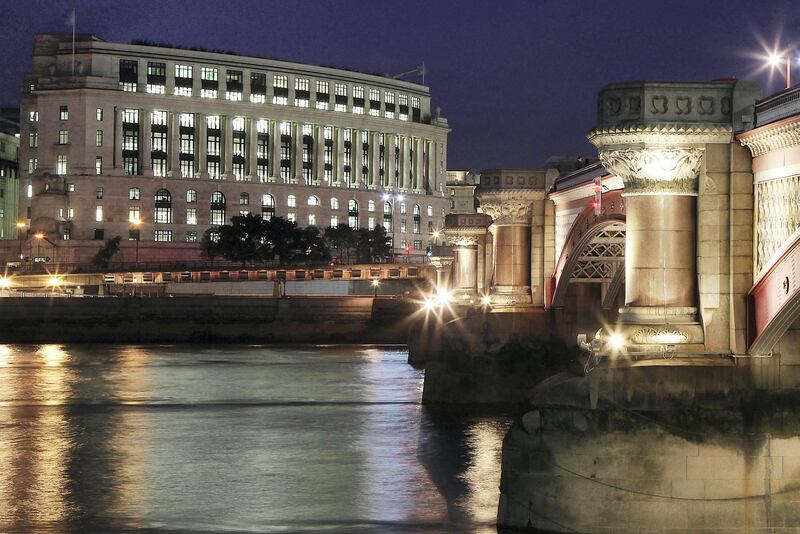The London headquarters of Unilever, with its dramatically curving frontage and white stone pillars, stands proud and imperial at the north side of the River Thames overlooking Blackfriars Bridge.
It was built by the famous English industrialist, philanthropist and politician Lord Leverhulme in the 1920s, the height of the Art Deco movement of architecture, when Britain still ruled half the world and Lever Brothers, which moved into the building in 1930, was the largest consumer goods company (basically it made soap and margarine) in Europe.
That was the year Lever merged with the margarine empire of the Dutch-based van den Bergh family to form what is now the world’s fifth-largest consumer goods company (Nestle claims top place, followed by Philip Morris, Proctor & Gamble and PepsiCo), with a dual stock exchange listing in London and Amsterdam. For all those years, although the Anglo-Dutch giant had two headquarters, one in London and one in Rotterdam, the culture was essentially British and the real power resided in Blackfriars.
But not anymore. Unilever has taken the decision to consolidate its headquarters in one place, and the board meets next week to decide where that will be. It is an open secret in the City and in Whitehall that it will not be London – and Brexit is being blamed for that. The Prime Minister Theresa May has already been briefed to brace herself for a decision that will be greeted with glee by the EU negotiators and by despondent faces on the British side.
It may be, of course, that the Unilever board would have settled on Rotterdam anyway, but that’s unlikely. Of its 169,000 international workforce, 7,500 of them are in the UK, only 3,000 in the Netherlands, and the London listing is much more important than Amsterdam, a relative back-water when it comes to capital markets.
_____________
Read more:
Unilever goes ‘Made in the UAE’ with factory in Dubai
Unilever’s Mena head warns of soft outlook for personal care industry
_____________
Lord Leverhulme, whose empire was actually based at Port Sunlight, outside Liverpool in north-west England, chose to build within the City of London for a good reason and it has served the company very well since.
Paul Polman, Unilever’s 61-year-old Dutch-born chief executive, argues that a unified head office will make it easier to do deals and undertake the huge task he has embarked upon of streamlining the company. But there may be another reason too: the abortive $143 billion bid from Kraft Heinz two years ago exposed the company’s vulnerability to a well-financed (it had Warren Buffett behind it) and cleverly timed predator. By unambiguously sheltering inside the European Union and warmly accepting its embrace, Mr Polman clearly hopes he will get an extra layer of protection should Kraft, or someone else, strike again. The British, he clearly reckons, with their much more open approach to the markets and takeovers, would throw him to the wolves.
But the timing for the British government could scarcely be more sensitive. The big exodus of jobs from the City that had been feared immediately after the referendum in June 2016 has not happened, but banks are still talking about moving staff out. Some of the big US tech companies have counterbalanced that by significantly expanding their operations in the UK in the past year, but London’s great strength is its critical mass and once it begins to lose that, the fear is its position could spiral downwards. The awful mess that Mrs May and her Conservative cabinet have got themselves into over the Brexit negotiations was deliberately made worse this week when the opposition Labour leader, Jeremy Corbyn, urged Tory rebels to support his new stance that Britain stay in the customs union post-Brexit.
And to Mrs May's dismay, on Monday some of them said they would do just that, suggesting an emerging alliance between a core group of Tory Europhiles, who refuse to accept even a "soft" Brexit, and Labour, which threatens to bring Mrs May's government to an abrupt end. Although his critics were quick to rip the contradictions in Mr Corbyn's stance apart (there is no way the EU's chief negotiator will agree to Britain leaving the EU yet continuing to share the same benefits it does now), there is real fear in the governing party – and in the City - that the rebels will let Mr Corbyn in. The former Foreign Secretary, William Hague, warned in The Daily Telegraph on Tuesday that the rebels are at risk of becoming "pawns of Corbyn", while a rebel MP defiantly told the Financial Times that, "This is a matter of such importance for the future of our country that the country comes first." These are strange times when Tory MPs believe there are putting the country first by forcing an election with the serious possibility of a left-wing Labour government.
In these charged and confusing debates, one can hardly blame the Unilever board for deciding it is time to seek a haven inside the EU. Its Anglo-Dutch counterpart, Royal Dutch Shell, moved to a single headquarters in the Hague in 2005 and has been reasonably comfortable with that position ever since. HSBC didn’t go, to the government’s great relief. But the timing of the Unilever decision could not be worse for the beleaguered prime minister, desperately seeking just the odd bit of good news.
If the Unilever move does come to pass – and most observers seem to believe it will – it will be a sad day for the City and for Unilever House, which was built to rule a world-wide empire.
Now it faces becoming just a branch office.





